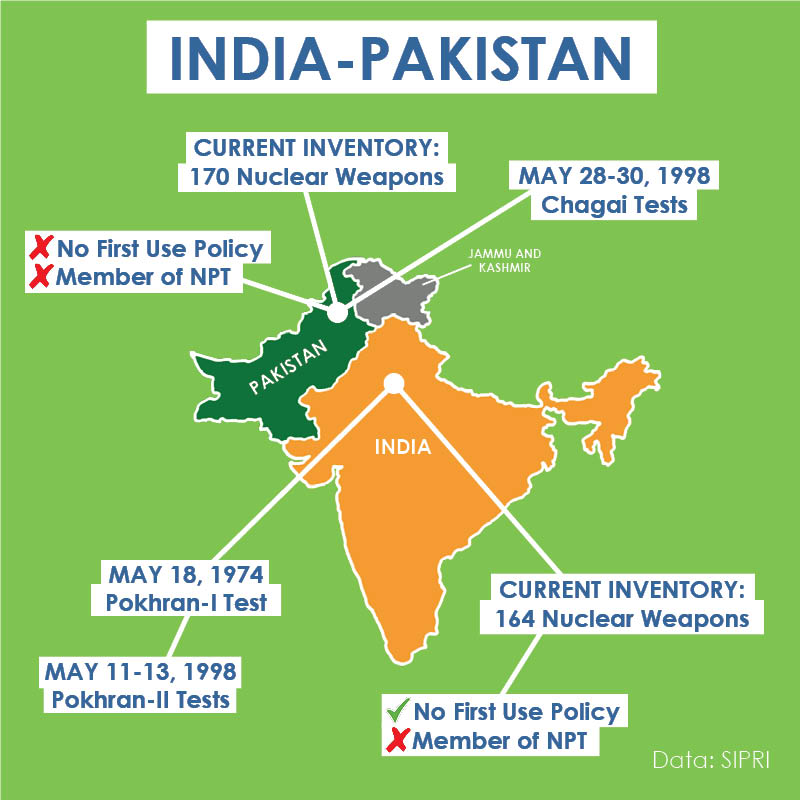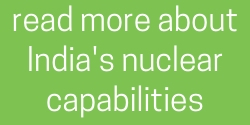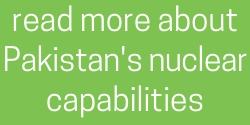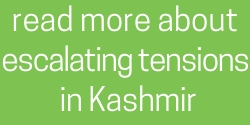 The history between India and Pakistan, both nuclear powers, is inextricably linked. The countries have fought a series of wars since gaining their independence from Great Britain in 1947, largely over the Kashmir region, to which both countries lay claim.
The history between India and Pakistan, both nuclear powers, is inextricably linked. The countries have fought a series of wars since gaining their independence from Great Britain in 1947, largely over the Kashmir region, to which both countries lay claim.
India became a nuclear power in 1974, and Pakistan became a nuclear power in 1998.
Neither country has used nuclear weapons in conflict, but many experts fear that the ongoing crisis could escalate beyond conventional weapons use.
India has approximately 164 nuclear warheads, and has land-based, sea-based and air-launch nuclear capabilities. The state had declared a No First Use policy, which means they have vowed to never use nuclear weapons first in a conflict. However, as of August 2019, India said they are reconsidering this policy.
Pakistan has approximately 170 warheads. This number exceeds the projection made by the U.S. Defense Intelligence Agency in 1999 that Pakistan would have 60-80 warheads by 2020. If the current growth trend continues, Pakistan’s arsenal could grow to 220 to 250 warheads by 2025. Pakistan keeps its nuclear warheads stored separately from its missiles and will only assemble one if it will be used. Unlike India, Pakistan has not declared a No First Use policy, and instead has opted to emphasize smaller battlefield or “tactical” nuclear weapons as a counter to India’s larger and superior conventional forces.
Even a small nuclear exchange between India and Pakistan could kill 20 million people in a week. If a nuclear winter is triggered, nearly 2 billion people in the developing world would be at risk from death by starvation.
Ankit Panda on India’s Anti-Satellite Test
At the end of March 2019, Indian Prime Minister Narendra Modi announced that India had successfully shot down one of its own satellites with an anti-satellite weapon. In this episode of our Nukes of Hazard podcast, we spoke with expert Ankit Panda to break down the test and what it means for broader security issues in South Asia.
Recent Analysis on India and Pakistan
- Op-ed: Nuclear Shadows Over South Asia: Strategic Instabilities in the China-India-Pakistan Triad August 9, 2024
- US vs China, Israel vs Iran, India vs Pakistan: Asia plays with fire as nuclear war safety net frays April 28, 2024
- India’s Agni-5 missile: Deterrence against China or is New Delhi thinking something bigger? March 21, 2024
- Op-ed: Nuclear Film Heists and Heroes Make For Apathy on the Weapons Themselves November 22, 2023
- Blinken Opens Dialogue with Xi July 10, 2023
- Hiding in Plain Sight: India and Pakistan’s Global Environmental Threat November 22, 2022
- The Brasstacks Crisis November 16, 2022
- Op-ed: India, China, Pakistan: Three nuclear powers hurtling towards the boiling point September 25, 2020
- History of Conflict in India and Pakistan November 26, 2019
- Op-ed: Move Over, Kim Jong Un: It’s Time to Talk about South Asia September 9, 2019



